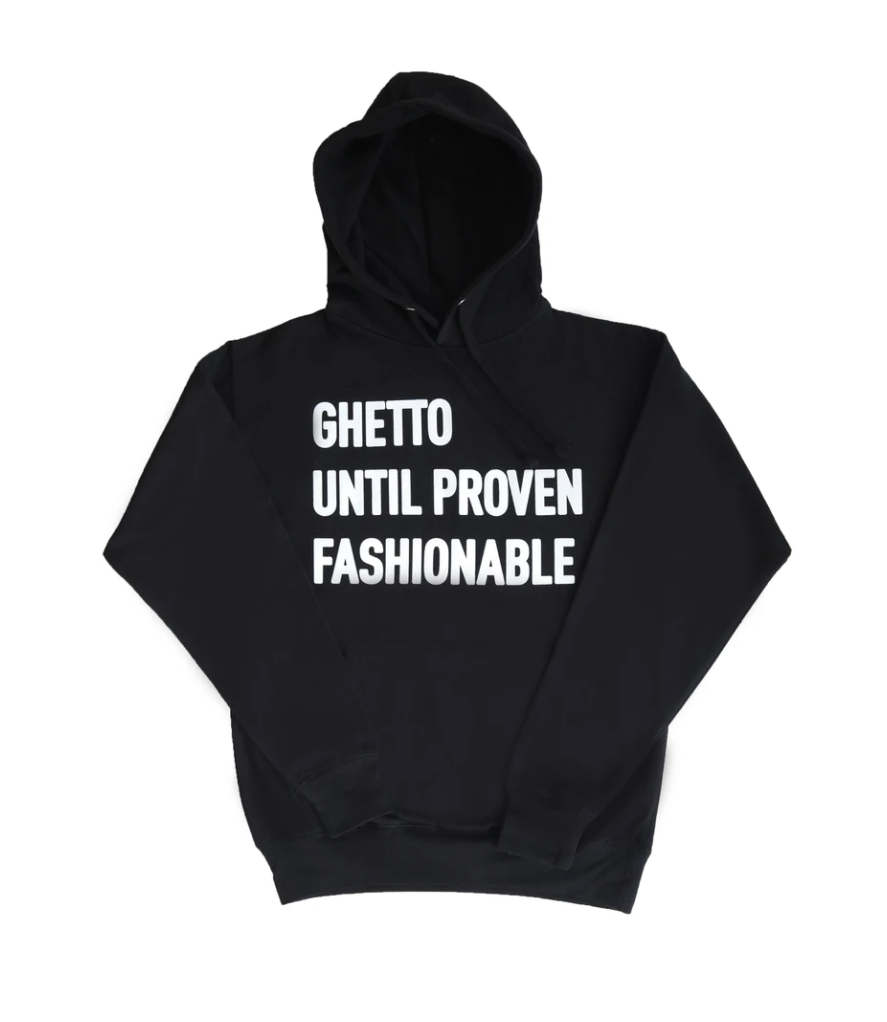Throughout popular culture, we often see trends created by Black women, usually deemed ghetto, co-opted by white women, and filtered into the mainstream. From gold nameplate necklaces to long acrylic nails and extended braids and ponytails — Black women are the blueprint. White women have been able to adopt these trends as their own without acknowledging the true tastemakers, all while maintaining their distance from Blackness and the very environments that birthed these trends.
On June 8th a screenshot resurfaced of Sondreanna Huff, a Black woman from Pensacola, Florida, who went live on Facebook wearing bright pink braids and matching strip eyelashes. During the live video, a number of critical comments rolled in, essentially calling her look “ghetto.” However, in February 2020 Allure featured the latest makeup trend — colored falsies. While we’re unable to pinpoint the first person who wore a colorful lash, it does speak to an existing problem, many aesthetics donned by Black women are often seen as ghetto until proven fashionable.
Her name is Shondreanna Huff she lives in Pensacola Florida. Her Facebook name is Savanchi Lavanchi. She got every influencer wearing them lashes after y’all bullied her for wearing them. Run her a check. https://t.co/aAjHVQB32i
— STAY OUTTA BLACK PPL BUSINESS (@internetdolI) June 8, 2020
Designer and fashion activist Nareasha Willis took notice of the problem, being a Black girl from the hood, and used her designs to amplify the message. “I started using the phrase as a hashtag in 2016 for photoshoots I directed. It was my way of expressing the direction I always went in. I was honestly tired of people being surprised I was from the ghetto as if I was supposed to walk, talk, and act a certain way. “The fashion industry referring to Black people as “ghetto” to later capitalize on it when a white woman does it is hypocritical, to say the least,” she says. Willis has gone on to release a line of loungewear with statements such as “Ghetto Until Proven Fashionable”, “Black Before It Was Fashionable”, and “You Can’t Have The Culture Without The Struggle” — phrases that spoke to the experience of Black people.
In wake of the protests, Willis’ phrase has been radicalized. Amongst a sea of signs, one read “Ghetto Until Proven Fashionable”. And while it seems that the hijacking of fashion and beauty trends are on a much smaller scale in comparison, it continues to speak to the erasure of Black lives. Over the last few days it has been apparent that Black voices continue to be drowned out, as many Black women and men in media shared their truths about working for publications and facing corporate oppression. As they worked hard to amplify Black stories, these individuals detailed that they have ultimately been reprimanded and silenced.
Fashion writer, Channing Hargrove spoke of her experience with Refinery29, stating that an executive asked her to issue an apology for questioning why white women were suddenly wearing so much gold, a trend that was also deemed ghetto previously. She referenced an episode of Sex In The City, in which Carrie Bradshaw said “Yeah, ghetto gold for fun!” in response to Charlotte’s puzzlement of Carrie being disgusted by potentially receiving a gold engagement ring.
Over the last few days it has been apparent that Black voices continue to be drowned out, as many Black women and men in media shared their truths about working for publications and facing corporate oppression, as they worked much harder to amplify Black stories, to ultimately be reprimanded and silence. Fashion writer, Channing Hargrove spoke of her experience with Refinery29, stating that an executive asked her to issue an apology for questioning why white women were suddenly wearing so much gold, a trend that was also deemed ghetto previously. She referenced an episode of Sex In The City, in which Carrie Bradshaw said ““Yeah, ghetto gold for fun!” in response to Charlotte’s puzzlement of Carrie being disgusted by potentially receiving a gold engagement ring.
I will never forget the EIC asking me to write an apology piece to white women for writing about them appropriating gold chains after my article went viral.
— Channing Hargrove (@chan_inthecity) June 3, 2020
That’s the thing, being “ghetto” is not some singular moment in time to birth temporary fads. The creativity and innovation of growing up in the hood is ingrained in Black culture. As writer Nezarial Scott put it in a 2017 article written for Flare, “Ghetto is nothing but creativity that hasn’t been stolen yet, we see you stealing and regurgitating our struggle for profit, but we’re here to take it all back — in all ways.”
The post Our Culture Is “Ghetto” Until Proven Fashionable appeared first on Essence.

